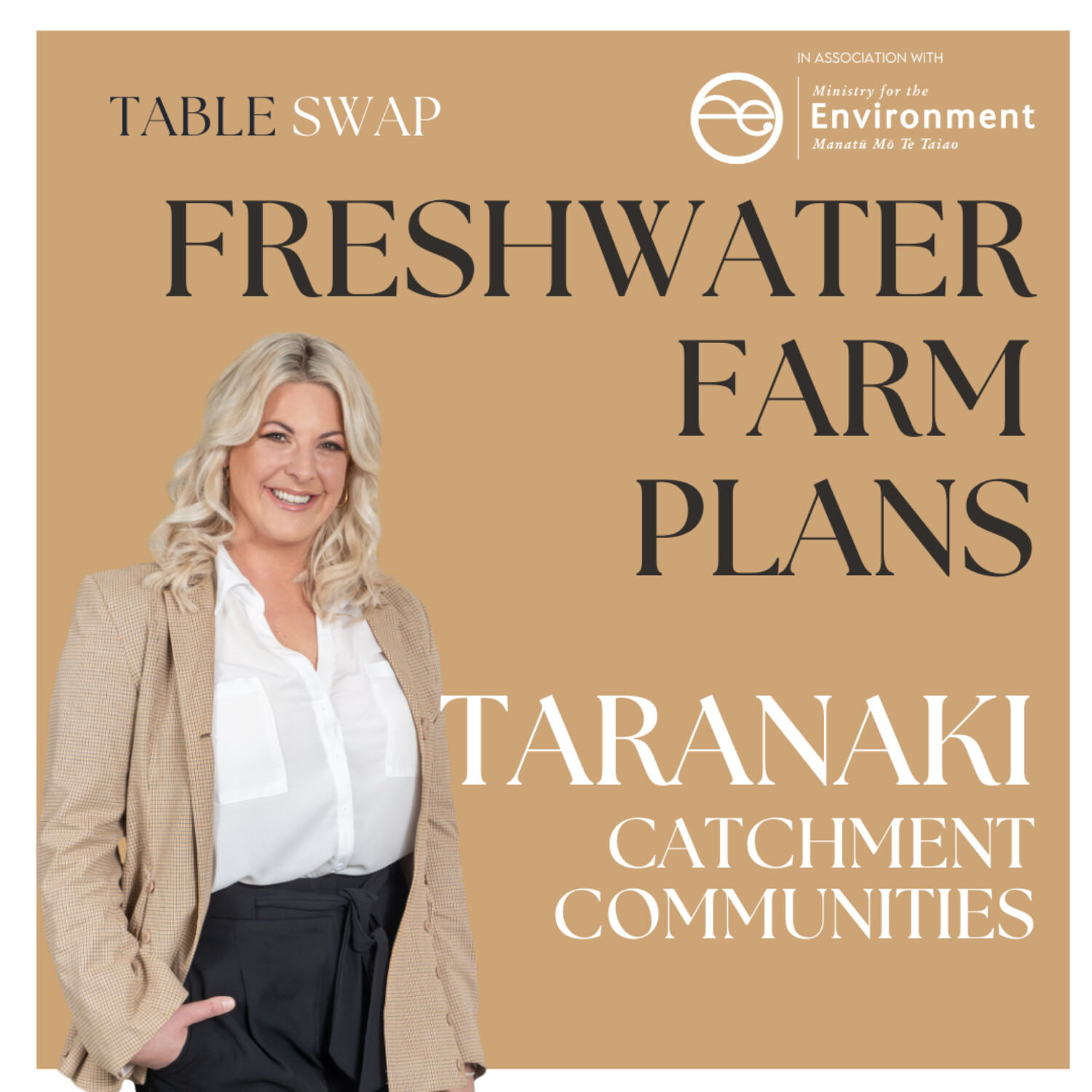How do those tasked with implementing environmental policy best engage with farmers to come up with solutions that are best for the land and are fit for purpose?
Ministry for the Environment has partnered with Sarah's Country to hit the road across the lower North Island in late 2021 to get out of Wellington and onto the farm to hear & see directly from farmers.
In this first episode as part of the three-part series, Sarah Perriam takes Director of Policy Implementation & Delivery, Sara Clarke, to meet Grant Charteris at Forest Road Farm, farming with his wife Sally in the Ruahine foothills at the top of the Tukituki River catchment.
After a farm tour of the work the Charteris' have done that saw them win the 2021 Elworthy Award for the premier environmental accolade for deer farmers, Sara meets also with local young farmer Hugh Abbiss at Foley Farming Enterprises to sit down for this episode.
"It's really hard to make a plan when the goalposts keep shifting, with the layers of rules between regional council & national policy statements. There's too much misinformation and direction," stresses Grant Charteris, Forest Road Farm.
TOP 10 things in THIS EPISODE
Sara Clarke sits down with Hawke's Bay farmers, Grant Charteris & Hugh Abbiss to discuss:
1. How will or won't Overseer continue to play into the proposed freshwater farm plans and what about measuring outcomes versus the move to regulating input controls & farming practices?
2. The Tukituki catchment are already working within Farm Environment Management Plans under Plan Change 6 with Hawke's Bay Regional Council, so how is more layers of rules from the national policy statement going to make a difference to the path they are on?
3. The frustration of getting clear direction from their local regional council who aren't getting clear direction from the central government so it stifles farmers appetite in investing in environmental work with a lack of security of the direction.
4. The leading farmers will pave the way to pull the laggard farmers up but not all farmers are in the financial position to achieve the Ministry's gold standard and it will take a decade of actions to sustainably fund it within the cost structures of farming the way they are.
5. They have recently formed the Mangonuku Catchment Group and have shared goals that every landowner can get in behind and believe it's the best forum for getting useable data for change as well as the support needed.
6. Hugh discusses the changes he's implemented such as direct drilling, catch crops and nutrient management and how to make more from less.
7. What does "fit-for-purpose" really mean when the freshwater farm plans aren't thinking about the whole integrated approach to make it sustainable to work.
8. Grant learns that not everyone from Wellington doesn't listen, and really excels in explaining his farming system and environmental actions actually out on his farm.
9. Better understanding needs to be taken into account through true farmer consultation, not hand-picking a panel based on the outcome you have already
10. If you stifle innovation you won't get the desired outcome all because the government want change to happen too fast, otherwise the leading farmers will sell to pine trees.
LINKS
Learn more about Freshwater Farm Plans
This episode is the first in a new weekly series for 2022 on Sarah's Country 'Table Swap' out discussing the big issues facing New Zealand's primary sector around farmers kitchen tables working on ways to move forward collectively.
CLICK HERE TO ENTER THE FEBRUARY PRIZE DRAW! WIN ONE OF THREE PREMIUM PASSES TO THE FARMAX CONFERENCE (9th & 10th March 2022) complete with a Farmax subscription (valued at $200)!


 Play
Play
